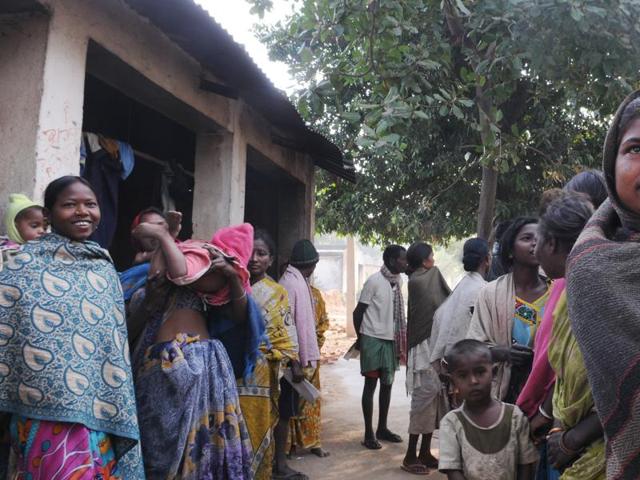Jharkhand tribal village survives on roots, dead cattle and mahua
At Birhor Tola, HT came across a heart-rending and sickening sight of at least five families peeling the skin of a buffalo — long dead and stinking.
A 45-year-old tribal villager, Paklu Birhor, and his companions forage a forest in the Jonha valley, barely 40km from the Jharkhand capital, every day at the crack of dawn for wild edible roots and herbs.

On a lucky day, they return home with game — rabbit, monkey, boar or birds. They count themselves fortunate if they stumble upon the carcass of a wild or domestic animal. These are staple food for 52-odd families living at a settlement in the Jonha hills. They belong to a small community called “particularly vulnerable tribal group or PVTG” in bureaucratic jargon but simply known as Birhor, the prefix to the name of their village or ‘tola’.
“Sarkar humre kar ration pani bandh koir diya, toh yahi khaye hai (Government has stopped our ration supply. Hence, we eat roots and dead animals),” says Paklu, digging with a rusted sickle. He looks 20 years older than he is, skinny and eyes drooping from the shots of mahua he had in the morning.
Mahua, the local brew, is a curse as well as blessing for these illiterate and impoverished forest-dwellers who depend solely on knowledge and skills passed down by their ancestors to survive.
Basic social security schemes, mainly food and special pension, have either not reached them or had been discontinued. Alcoholism is rampant. Paklu has his mahua (alcoholic beverage) fix to forage and scavenge for food. The sick and feeble gulps down copious quantities of the heady drink to forget hunger and tame their appetite, locals say.
At Birhor Tola, HT came across a heart-rending and sickening sight of at least five families peeling the skin of a buffalo — long dead and stinking. The skin will fetch them a few hundred rupees, enough for a community feast, while the meat will sustain them for at least a week. The stale flesh is a spawning ground for diseases. That’s least of their concern.
This wasn’t the case till some months ago. Trouble began when the Jharkhand government with all good intention rolled out schemes under the national food security act in October 2015 for more than 20 million beneficiaries, including endangered groups such as Birhors, Birajias, Baigas and Souriya Pahariyas. The old ration cards were cancelled; fresh ones issued — or have been in the process being distributed.
At Birhor Tola, barring Meghanth Birhor, none have received the new ration card, thereby depriving them of the 35kg of free rice each family earlier used to get every month. The new scheme also entitles them to 35kg of rice a month. But they can’t get it without the new card. “I got rice through this card till September last year. They say this is of no use now,” says 55-year-old Dukhiya Birhor. Women in the village make ropes while the men search for food in the forest.
“I earn Rs 15 to Rs 20 a week, which helps me buy a kg of rice,” says septuagenarian widow Rupani Birhorin. Ranchi deputy commissioner Manoj Kumar wonders how the Birhors failed to get their new ration cards. “We have extended the date of enrolment to January 31. A team will soon travel to the colony to help them.”
Get Current Updates on India News, Lok Sabha election 2024 live, Election 2024 along with Latest News and Top Headlines from India and around the world.




